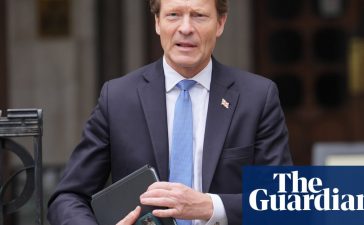
When the world is swallowed in conflict, what’s the point of writing? These simple words on the page can’t save anyone. They can’t undo the trauma now living deep within people’s bodies. They can’t bring anyone back from the permanence of death.
Unlike any other time in history, today’s injustices are laid out for the world to see, constantly forcing us to choose between turning away or facing reality. In times like these when writing may seem inconsequential, writers and writings play a critical role to understand historical context, provide a tool to humanize, learn about the current situation, and build a vision of a better world.
Throughout history, many people have dedicated themselves to preserving the written word. For his efforts in preserving, copying, and expanding texts, Francesco “Petrarch” Petrarca is referred to as a humanist by “Humanly Possible” author Sarah Bakewell. Initially, I didn’t understand how this was a humanist effort, until I understood that Petrarch and others like him had to locate and make handwritten copies of ancient texts to keep their words alive. This kind of dedication brings us the history we have today. It helps contextualize the world, especially when others try to rewrite or erase it.
The state of Palestine has been regularly questioned and remains unlabeled on Google Maps. Thanks to the preservation efforts of those before us, we have the written word concretizing Palestine into history, dating back to 5 BCE in “The Histories” by Herodotus. Versions of the name can be found many centuries later, to 1603 when Shakespeare referenced Palestine in “Othello” when Emilia tells Desdemona, “I know a lady in Venice would have walked barefoot / to Palestine for a touch of his nether lip,” up to today in historian Rashid Khalidi’s “The Hundred Years War on Palestine.” Petrarch says, “[Books] speak with us, advise us and join us together with a certain living and penetrating intimacy.” They keep the world and its people alive while allowing us to trace and analyze the historical context that led to today’s world.
A few years ago, I wanted to learn about Palestine. In my research, I encountered one of the most beautiful books I’ve read recently, after Yaa Gyasi’s “Homegoing,” Susan Abulhawa’s “Against the Loveless World.” The story follows Nahr, a Palestinian refugee, as she reflects on her life’s journey while in solitary confinement for participating in the Palestinian resistance. After finishing the book early one Sunday morning, I hard-cried for Nahr for 20 minutes, as if she were my own sibling who just finished sharing tragedies I never knew. This is another critical aspect of writing: Its power to humanize. Writing brings its readers into the depths of a person’s life. You can bond with someone so deeply, you feel as if you’ve known them your whole life and cry for them as you would your own loved one.
With a mix of the written and visual world that is social media, so many incredible people have taken it upon themselves to educate and spread awareness of the world’s issues.
Young journalists like Bisan Owda, Motaz Azaiza, and others share the complexity of navigating the terror of nearby bombings to the joy of finding fresh fruit in besieged Palestine. Law professor, author, and activist Khaled Beydoun and others are also doing critical work by using their platforms to advocate and broadcast these stories to promote people-generated and people-centered news. Writing paired with other mediums are crucial to spotlighting the current state of the world.
While at a loss for a topic to write about, I came across poet Natalie Wee’s X post expressing an impeccable echo of my own feelings, “if you, like me, have been questioning the point of writing in a time like this, I hope these words by George Abraham, Hala Alyan, Toni Morrison, Fargo Nissim Tbakhi remind you (as they’ve reminded me) that the writer’s place is in the revolution.” Wee begins the next post with a perfect quote by poet George Abraham that captures the final fundamental aspect of writing in times like these: “Poetry can’t stop a bullet. Poetry won’t free a prisoner. And that’s why we need to do the political organizing work as well. But if we can’t imagine a free liberated world in language, how can we build one?”
Writing helps us build a roadmap for a better world. If we can write it, we can build it, because it already exists somewhere, even if that somewhere is the nebulousness of our imagination. That vision is alive and waiting for its proper place in the world.
If you are also unsure about the importance of writing or creating right now, know you’re not alone. Many of us feel the weight of hopelessness and powerlessness. The written word helps us understand history, build empathy, be present, and envision a better world. As a writer and a reader, you have the power of writing and next the ability to read and learn at your disposal. There are other avenues to offer support, like sharing the work of others. Find the avenue that works for you. Every small effort helps build a movement.
Allyson Jeffredo is a poet, writer, and educator from the Coachella Valley. Read more about her and her work at allysonjeffredo.com.






